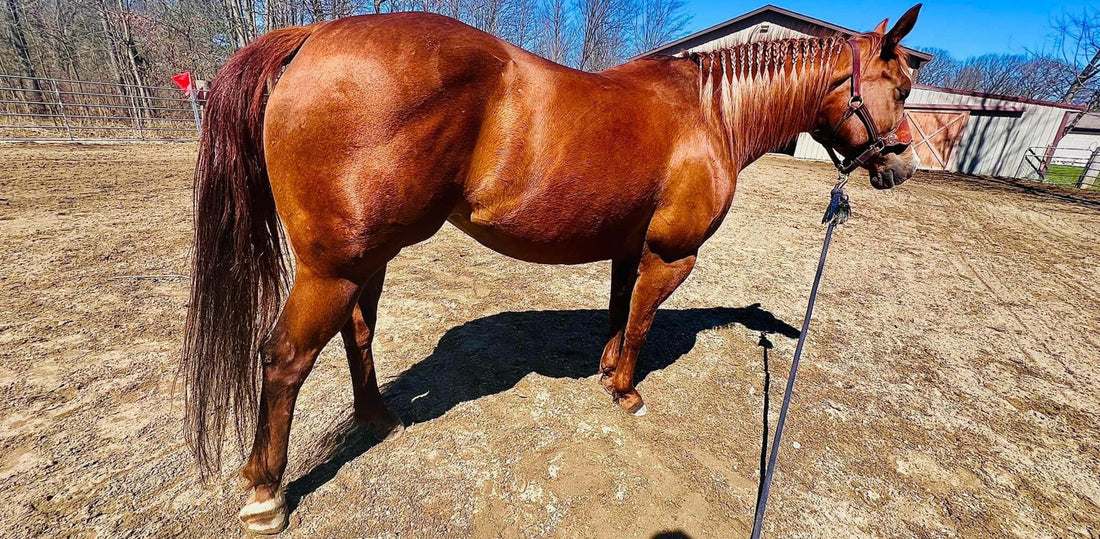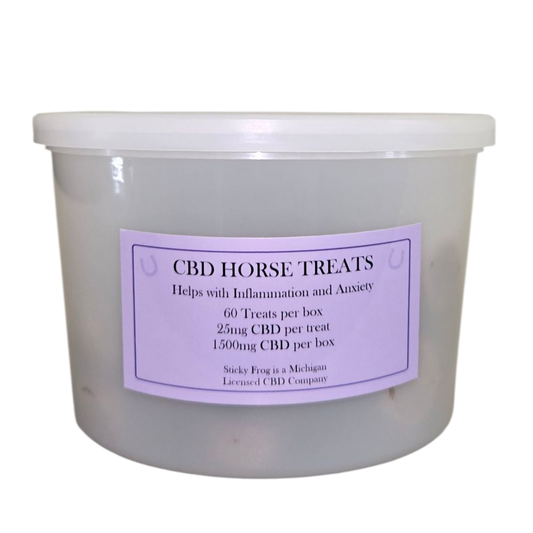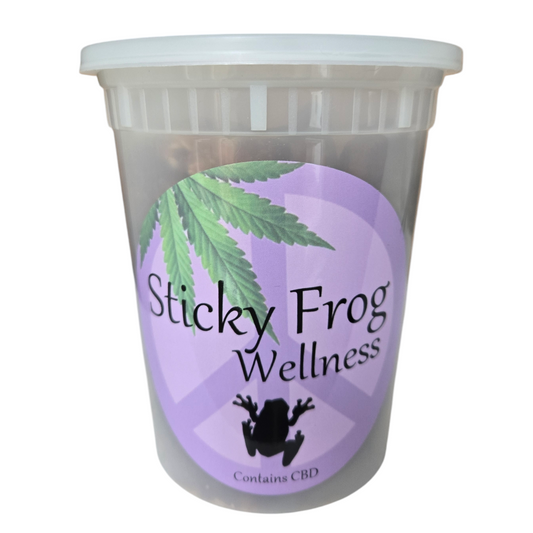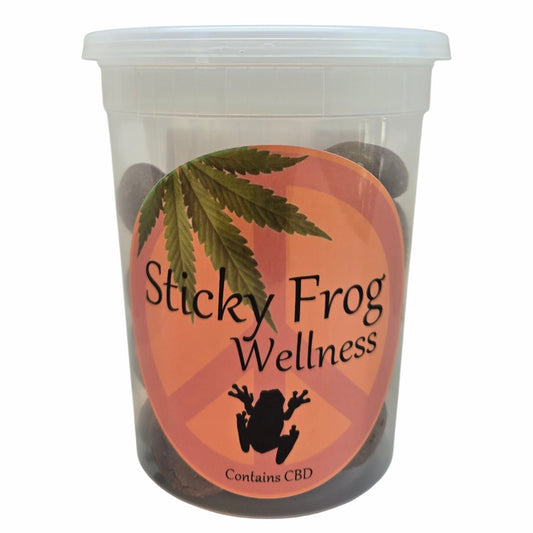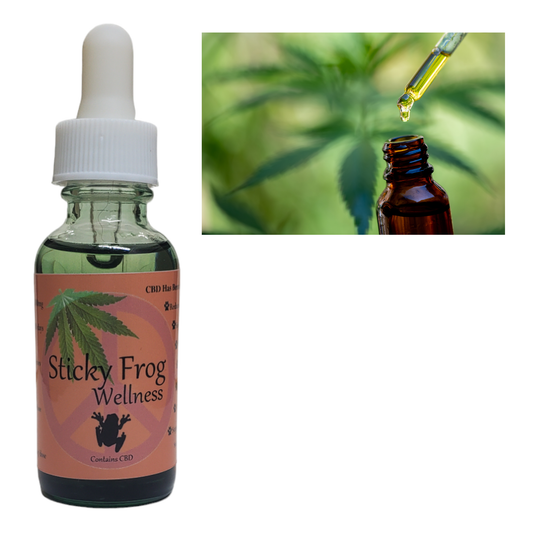CBD for Horses
Cannabidiol (CBD) is a naturally occurring phytochemical found in the cannabis family of herbaceous, flowering plants. Common varieties of cannabis include Cannabis sativa and Cannabis indica.
The cannabis plant contains over 500 biologically active compounds, many of which are classified as cannabinoids. These cannabinoids can be either psychoactive or non-psychoactive.
CBD is a non-psychoactive cannabinoid and is the predominant compound in the hemp plant, though its concentration varies among different strains.
In Canada and Europe, CBD and CBD-containing products are regulated as controlled substances.
Cannabidiol (CBD) is a phytochemical present in the cannabis family of herbaceous, flowering plants. Common strains of cannabis plants include Cannabis sativa and Cannabis indica.
Cannabis Plants: Hemp vs Marijuana
Cannabis strains are categorized as either marijuana or hemp based on their THC (tetrahydrocannabinol) content and Cannabidiol (CBD). THC is the primary psychoactive cannabinoid found in marijuana plants. CBD is the primary compound found in the hemp plant with no psychoactive effects.
In Canada, the USA, and Europe, hemp—commonly Cannabis sativa—is legally defined as any part of the cannabis plant containing no more than 0.3% THC by dry weight.
The term "marijuana" generally refers to cannabis plant parts with THC levels exceeding 0.3%.
The Endocannabinoid System (ECS)
Cannabidiol influences the endocannabinoid system (ECS), a recently discovered biochemical communication system in vertebrates that influences many physiological functions through a network of chemical signals and cellular receptors.
The ECS controls functions needed to maintain health, including homeostasis (a state of metabolic balance). This system also influences:
- Learning and memory
- Emotional processing
- Sleep
- Temperature control
- Pain control
- Inflammatory and immune responses
- Hunger
Components
The ECS is a complex cell signaling network comprised of three major components including:
- Cannabinoid receptors (CB1 and CB2)
- Endocannabinoids that occur naturally inside the body
- Enzymes required for the synthesis and degradation of endocannabinoids
Exogenous vs. Endogenous Cannabinoids
Endogenous cannabinoids, also called endocannabinoids, are neurotransmitters produced within the body that interact with cannabinoid receptors in the central and peripheral nervous system.
Endocannabinoids include anandamide (a fatty acid neurotransmitter) and 2-arachidonoyl glycerol (a compound formed from the omega-6 fatty acid arachidonic acid and glycerol).
Cannabis compounds, such as CBD, can also bind to and activate cannabinoid receptors in the body. These are called exogenous cannabinoids because they originate outside the body.
Exogenous cannabinoids include synthetic compounds as well as natural compounds present in cannabis and other plants, which can also affect cannabinoid receptors.
(CBD) Cannabinoid Receptors CBRs
Cannabinoid receptors (CBRs) are found in both the central nervous system (brain and spinal cord) and the peripheral nervous system.
The endocannabinoid system (ECS) primarily consists of two types of receptors: CB1 and CB2, both classified as G-protein-coupled receptors. Additional receptors may also contribute to ECS function.
CB1 receptors are located in both the central and peripheral nervous systems, while CB2 receptors are predominantly found in peripheral immune system tissues.
CBD interacts with the ECS to produce therapeutic effects by influencing these receptors. Endocannabinoids bind to CB1 and CB2 receptors, triggering specific physiological responses.
For instance, activation of CB1 receptors can induce pain-relieving effects, whereas CB2 receptor activation plays a role in immune system modulation.
Mode of Effect
CBD demonstrates anti-inflammatory, antioxidant, anticonvulsant, analgesic, and immunomodulatory properties. However, the exact mechanisms behind these effects are not yet fully understood.
Like other cannabinoids, CBD functions as a ligand, meaning it binds to cannabinoid receptors and influences their activity. It interacts with cannabinoid receptors (CBRs), mimicking the effects of endocannabinoids to regulate various physiological processes.
Additionally, CBD can exert effects beyond the endocannabinoid system (ECS). It influences neurotransmitter levels, including adenosine, serotonin, noradrenaline, dopamine, and GABA, contributing to its therapeutic potential.
CBD also appears to inhibit the breakdown of the body’s natural endocannabinoids, prolonging their effects.
Research on CBD in Other Species
Studies in humans and animals are currently exploring CBD’s effectiveness in treating a wide range of conditions.
This research is often relied upon to suggest therapeutic benefits in horses. However, evidence of effects in other species does not necessarily mean the same effects will be observed in horses.
Even if CBD binds to the same receptors in each species, the duration of binding to the receptor and affinity for it may differ, thus altering the effects experienced in the animal.
Inflammation and Pain
Research in various animal species, including cats, dogs, and mice, has shown that CBD has anti-inflammatory properties.
CBD is being investigated for its potential to alleviate inflammation and pain associated with joint disease, neuropathic disorders, skin conditions, gastrointestinal illnesses, and other health issues.
In studies on rats, topical application of CBD to the knee joint demonstrated therapeutic potential in reducing arthritis-related pain, swelling, and inflammation, with no reported side effects.
Brain Function and Behavior Modification
CBD may have positive effects on reducing psychotic, anxiety, and depressive behaviors. This is attributed to CBD’s effects on altering the central nervous system.
Research in humans and animals shows that CBD can also help to reduce brain damage associated with neurodegenerative conditions and those involving impaired blood supply (ischemic conditions, e.g. stroke).
Seizure-Related Disorders
Findings from animal models and human trials have confirmed the anticonvulsant effect of CBD. However, further research is needed to establish effective dosages and determine efficacy in different species.
CBD for Human Use
Applications for CBD use in humans that are currently being investigated include:
- Seizure related disorders
- Depression and anxiety
- Psychosis
- Cardiovascular disease
- Neurodegenerative disease
- Pain
- Inflammation
Effects of CBD in Horses
Research on the benefits of CBD in horses is limited. Most of the available research on CBD has focused on humans and animals such as mice, rats, and pigs.
Some of the recent research on CBD use in horses is summarized as follows:
Case Report on Pain Relief
A case report documented the use of CBD in a 4-year-old mare with extreme sensitivity when touched near the shoulder region. The mare was diagnosed with mechanical allodynia (pain from a light stroke or brush).
Oral administration of CBD two times per day eliminated the pain rapidly. CBD was given to the mare after several other treatment strategies had failed.
Anti-inflammatory Effects
The effectiveness of CBD for reducing inflammation in horses is currently being investigated.
- A study investigating the effectiveness of a 99.9% CBD as an anti-inflammatory agent determined a 4 µg/mL dose of CBD reduced the production of inflammatory signaling protein molecules (cytokines) when blood was collected from senior horses and tested under artificial conditions (in vitro).
- An in vitro study found that CBD influences COX-1, COX-2 and LOX enzymes that modulate inflammation.
- A study that investigated the effects of CBD on immune function in 13 horses over 90 days found that it reduced the production of certain inflammatory markers with no negative side effects.
CBD Metabolism in Horses
CBD is metabolized in the liver and intestines. Research studies are currently investigating the time it takes for CBD and its by-products (metabolites) to clear from the blood, tissues, and organs of horses.
Although mammals produce similar metabolites following the metabolization of CBD, the rate of metabolization differs between species.
A study investigating the pharmacokinetics and bioavailability of cannabidiol in senior horses determined that CBD was undetectable in plasma 24 hours following administration at an oral dose of 2 mg/kg or intravenous dose of 0.1 mg/kg.
However, the 7-COOH CBD metabolite was still detectible in senior horses at 264 hours after a single dose.
Safety & Tolerance
The Tolerable Upper Intake Level (UL) of CBD for horses has not yet been established. The UL refers to the highest average daily amount that is safe for horses to consume. Not necessarily the amount needed to see results.
Most studies have investigated CBD use in horses at doses between 0.5 and 2mg/kg of body weight. For a 500 kg (1100 lb) horse, this is between 250 – 1000 mg per day.
Research studies have determined CBD is safe at the following administered doses and durations:
- Senior horses had no adverse effects from a single oral or intravenous dose of 2 mg/kg of body weight of CBD.
- CBD at a dosage of 0.35 mg/kg or 2.0 mg/kg once daily for seven days was well-tolerated by mature horses.
- CBD-containing feed that provided 150mg was readily consumed and did not result in changes in mentation, gait, or other health parameters. No adverse clinical signs were observed during 56 days of oral administration of the CBD product.
- Exercising thoroughbreds that received a single oral dose (0.5, 1, and 2 mg/kg) of CBD suspended in oil showed this amount was well tolerated, with no significant behavioral, gastrointestinal, or cardiac abnormalities observed.
Types of CBD Products for Horses
Aside from humans, companion animals and horses are the second largest target market for CBD products.
In Canada, CBD products that do not make any health claims may be sold lawfully under the Cannabis Act. There are currently no Health Canada-approved CBD medications for animals.
In the USA, CBD is regulated by the Federal Drug Administration (FDA). There are currently no FDA-approved CBD products for animal use.
In the USA and Canada, CBD products are available in a range of formats, including:
CBD Oils: CBD oils are usually the most potent and unprocessed form of cannabidiol. These oils have been removed directly from the flowers and stalks of the hemp plant.
CBD Tinctures: Tinctures contain CBD but are typically less potent than CBD oil. The CBD in a tincture has been extracted with alcohol or another solvent.
Edible CBD Products: Pellets and treats are formulated with CBD in them.
Topicals: Creams, lotions, salves, gels, rollers, and sprays containing CBD are commonly used for joint comfort and muscle tension.
Administration
Delivery Method
Various formulations are being researched (i.e. oral, intravenous, topical etc.) to determine which CBD preparations and delivery methods are most effective in horses.
Dosage
CBD-containing products are typically recommended to be administered according to the animal’s body weight. Follow the dosage directions provided by the manufacturer of the CBD product you are using.
Typical daily dosages of CBD for horses range from 0.5 to 1.5 mg per kg of body weight. There is no standardized dosage or concentration of CBD products for horses.
When using a CBD tincture, the product should indicate how much CBD is contained within the entire bottle. Concentrations vary and dosages must be adjusted according to the potency of the formulation.
Safety & Toxicity
Research suggests CBD is safe for both animals and humans when administered at recommended dosages.
CBD may interact with other medications and should be administered cautiously and according to the product manufacturer’s directions.
If your horse is being treated for a medical condition or has been prescribed medication, consult with your veterinarian to determine if this product is safe for your horse.
Considerations for Using CBD
- Veterinarians cannot legally recommend, administer, or prescribe CBD in Canada or the US. However, owners can legally administer CBD to their own horses.
- Consult with a veterinarian before administering CBD to your horse to determine overall health status. Some equine health symptoms may indicate an underlying disease that requires treatment.
-
CBD is not a miracle cure for any ailments or diseases, but may provide some therapeutic benefits. IT DOES NOT WORK FOR EVERY HORSE AND SOME HORSES REQUIRE MORE THAN OTHERS.
- Products are created with different extracts and base oils so please strictly follow the manufacturer’s instructions regarding dosage before administering any CBD product to your horse to avoid adverse effects.
- Purchase CBD from a reputable company. CBD manufacturers and distributors should be able to provide proof of current COA (certificate of analysis) from a third-party testing laboratory for their products.
- Prohibited in some show circuits. Check show rules for clarification.

